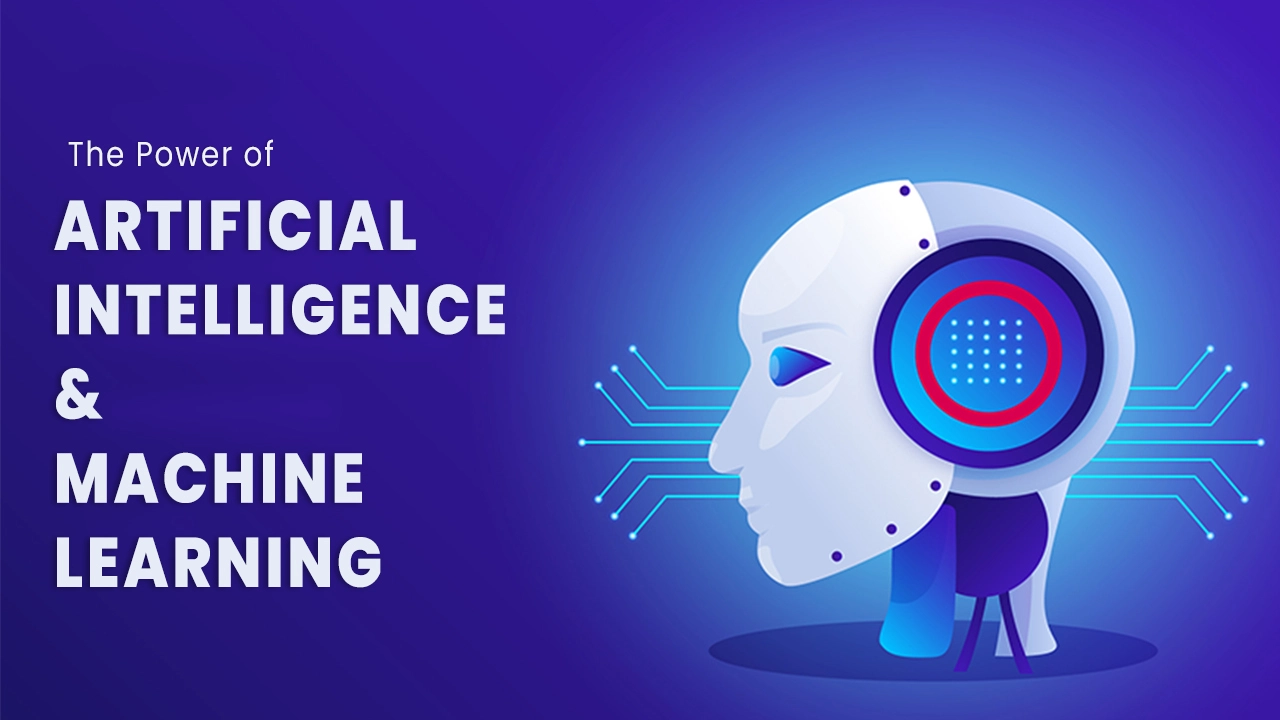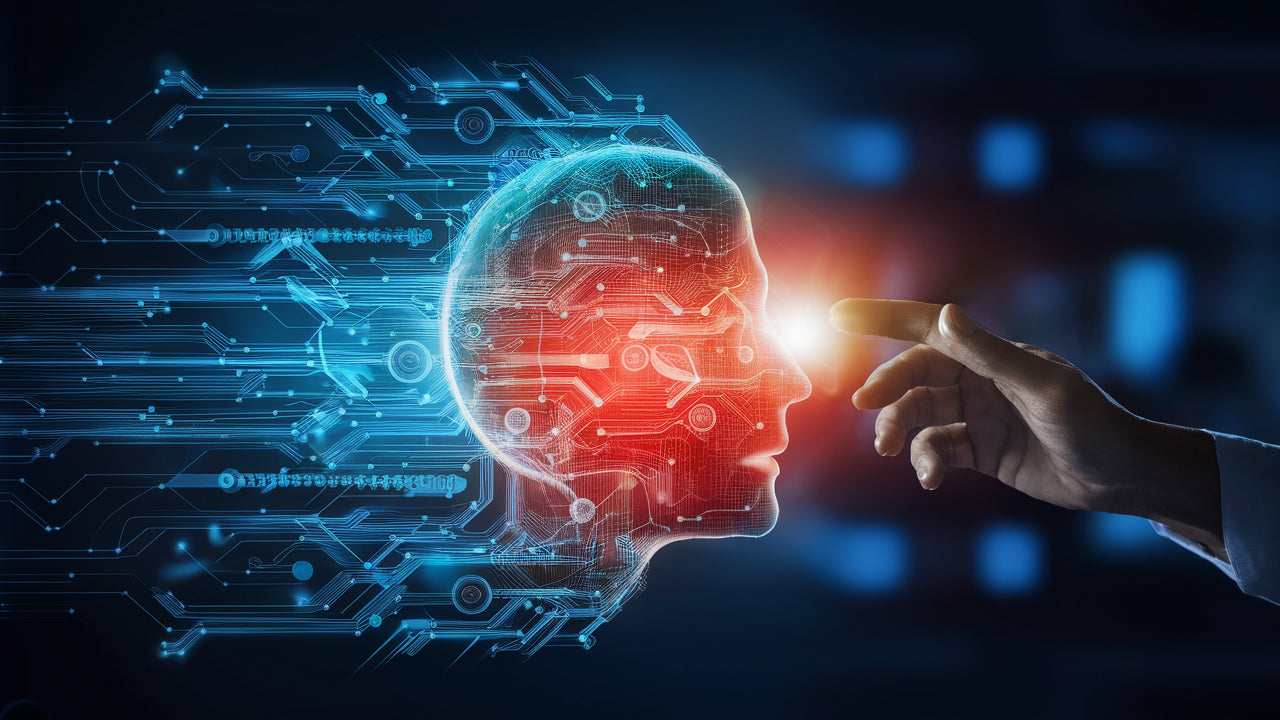
We may earn money when you click links to our partners. Find out more.

What is synthetic general intelligence (AGI), and why does it matter? As one of the most talked-about subjects in technology today, it has actually triggered a race among leading companies like OpenAI and Google to turn this cutting-edge idea into truth. Understanding AGI is essential since it has the potential to revamp industries, affect our society in extensive methods, and alter the method we interact with innovation. Here's what you need to learn about what it might be able to do, how it might change industries and fields, and the considerable difficulties facing its advancement.
KEY TAKEAWAYS
• AGI varies from traditional AI in crucial methods in that it would have the ability to think, learn by itself, and adapt to brand-new obstacles like human beings unlike standard AI, which is developed for specialized tasks and runs within a restricted scope. It requires people to upgrade and refine capabilities. (Jump to Section).
• Once it becomes a truth, AGI would have the ability to make exceptional advances in a number of fields, consisting of health care, research, and finance sectors. (Jump to Section).
• Creating AGI is difficult due to the research study challenges that consist of technical, ethical, and social concerns. Addressing these difficulties is main to preserving the safe and favorable advancement of this innovation. (Jump to Section)
Featured Partners: Artificial Intelligence Software
Discover more
TABLE OF CONTENTS
What is Artificial General Intelligence (AGI): A Clear Definition.
Understanding AGI vs Traditional AI.
Potential Applications of Artificial General Intelligence.
Challenges in Artificial General Intelligence Research.
3 Introductory AGI Courses to Consider.
Frequently Asked Questions (FAQs).
Bottom Line: Why Knowing What Is Artificial General Intelligence Matters.
What is Artificial General Intelligence (AGI): A Clear Definition
Artificial basic intelligence, or AGI, describes a type of artificial intelligence (AI) that can analyze, learn, and carry out any cognitive task that a human can do. Unlike today's AI, shiapedia.1god.org which is built to deal with particular tasks like advising products or processing information, AGI would be able to adjust to new difficulties and apply understanding throughout various fields. To put it simply, this advanced kind of AI would think and reason like a human. While AGI holds terrific possible, it's worth keeping in mind that it is still a principle today, with no fully established systems offered yet.

Key Capabilities of Artificial General Intelligence

AGI would have a series of capabilities that simulate human intellectual functions, so it can carry out jobs beyond the narrow focus of the current AI tools in the market. Some essential capabilities include the following:
Human-Like Reasoning: The innovation would be able to understand and make decisions the method people do. It would think critically, fix issues, and develop options based upon its own experiences and pattern-wiki.win past interactions, comparable to how we use past knowledge to new scenarios.
Solving Unfamiliar Problems: Among AGI's strengths is its prospective to take on new issues. Unlike traditional AI, which is trained to perform particular tasks, AGI would have the capability to manage issues it hasn't been straight trained to solve. It might find out how to approach an entirely new obstacle, similar to people do when faced with something we have actually never ever encountered before.
Self-Learning and Adapting: AGI might fine-tune its skills and gain from experience, without the requirement to be by hand updated each time. It would observe and evaluate data, gain from errors, and discover better methods to finish tasks over time. This means AGI could adjust to new situations and get better at tasks by itself.
Using Knowledge Across Different Areas: AGI would have the ability to take what it learns in one location and use it to other jobs. For instance, if it discovered how to solve math problems, it could use that understanding to address obstacles in other fields, like science or company. The ability to transfer skills throughout different locations is something people do naturally and would make the innovation flexible in diverse sectors.
Understanding and Reacting To Emotions: Recognizing and reacting to human emotions would likewise be within AGI's capabilities. This would be crucial in settings where understanding people's feelings matters, such as health care, customer support, or social situations. By responding to feelings properly, AGI would be better geared up to work with people in an efficient way.
Understanding AGI vs Traditional AI

The table listed below offers a snapshot of the significant distinctions between AI and standard or narrow AI by underscoring their abilities, adaptability, and existing status.
AGI would have the ability to think, find out autonomously, and adjust to brand-new difficulties like humans. However, it is still theoretical and has not been realized yet. On the other hand, conventional AI is developed for specific tasks and runs within a repaired scope. It can not change to new tasks without human input.
For instance, an AGI might find out to diagnose medical conditions, then utilize that understanding to develop individualized treatment plans-and even adjust its technique based upon the client's progress. Additionally, it might use this problem-solving capability to tasks in totally various fields, such as developing service methods or encouraging on environmental conservation. On the other hand, traditional AI, like a diagnostic tool, can only evaluate medical information for particular conditions. It can not adapt to other areas or improve on its own.
Potential Applications of Artificial General Intelligence
While AGI isn't here yet, its prospective applications span many fields and hold excellent promise of drastic advancements in lots of sectors. Without being limited to specific jobs like narrow AI, AGI would be extremely versatile and could use its abilities to resolve multi-disciplinary problems. It could overcome obstacles presently beyond the abilities of existing AI applications.
Transforming Healthcare
AGI would alter the game in healthcare by detecting complex and uncommon illness with higher precision, even in cases where signs are ambiguous or overlap with numerous conditions. It might create highly personalized treatment plans by studying client history, hereditary info, and real-time health data. In addition, AGI might accelerate drug discovery, recognizing possible treatments in weeks rather than years by processing huge datasets and running predictive simulations.
Advancing Scientific Research
In scientific research, AGI would have the ability to mimic experiments, examine detailed datasets, and create hypotheses. It could expedite developments in quantum physics, genomics, and climate science. By incorporating knowledge from numerous domains, the innovation might uncover connections and solutions that might otherwise go unnoticed by standard AI.
Improving Industry
Organizations in the commercial field might use AGI to enhance performance in real-time by managing whole supply chains. It would anticipate and resolve disruptions before they occur. In manufacturing, it might supervise self-governing factories, enhancing production procedures while keeping security and quality requirements. Its capability to get used to altering circumstances would make it an indispensable tool in commercial environments.
Enhancing Business Strategy
AGI might enhance company decision-making by examining market patterns, customer behavior, and functional information to discover opportunities and threats. In contrast to narrow AI systems, AGI would innovate solutions to challenging business issues, such as dealing with economic uncertainty or forecasting long-term market shifts. Its ability to gain from varied sources would empower services to stay competitive.
Redefining Finance
In the financial sector, AGI could increase forecasting accuracy by spotting patterns in huge quantities of financial data, so investors and institutions can make educated choices. It would likewise have the ability to spot fraud in real-time by recognizing subtle abnormalities that standard AI systems may miss. Additionally, AGI could construct more robust monetary models, considering complicated variables and scenarios to mitigate threats.
Challenges in Artificial General Intelligence Research
Developing AGI is one of the most ambitious goals in innovation, however it features lots of difficulties. These challenges include technical, ethical, and social locations, making AGI development an elaborate and multi-faceted procedure. Overcoming the following difficulties amounts guaranteeing safety, upholding ethical requirements, and thoroughly planning how AGI's introduction and use will impact people, markets, and society as a whole:
Making AGI Truly Flexible: forum.altaycoins.com AGI would require to handle a large range of problems and adjust to new circumstances, much like human beings. Building a system of versatility is incredibly tough since current AI tools are not designed to believe or discover at this level of sophistication.
Massive Computing Needs: To replicate human intelligence, AGI would require massive quantities of calculating power to process info from varied sources quickly. Figuring out how to make such systems effective and effective enough for real-world use is a substantial challenge.
Understanding Human Intelligence: We don't completely comprehend how human believing works, specifically complicated elements like intuition or consciousness. Without this understanding, it's challenging to build machines that can emulate human-like thinking.
Making AGI Safe and Ethical: AGI could potentially be misused, like to produce biased systems or hazardous tools like self-governing weapons. Researchers should make certain that AG is developed responsibly and follows rigorous ethical standards. This is a tricky job that requires international partnership.
Keeping It Under Control: There's a risk AGI might act in methods we do not anticipate, particularly since it would have the capacity to discover and change over time. Ensuring that these systems stay aligned with human values and are safe to utilize is one of the most significant difficulties in AGI research study.
Effect on Jobs and Society: If AGI comes true, it could replace tasks or cause economic inequality by benefitting some groups more than others. Getting ready for these social effects is simply as important as constructing the technology itself.
High Costs and Resources: Researching AGI demands a lot of money, time, and professional knowledge. Not all companies have these resources, decreasing progress and leaving smaller businesses out of the race.
3 Introductory AGI Courses to Consider
Familiarizing yourself with AGI can provide you a competitive edge, whether you want to advance your profession in AI or just wish to stay notified about emerging innovations. The following introductory courses can help you acquire a deeper understanding of what artificial basic intelligence is, so you can solidify your knowledge about this appealing AI development.
Artificial General Intelligence (AGI): An Introductory Course on Udemy
This Udemy course supplies a fundamental understanding of AGI, suitable for novices without any previous experience. The course covers pertinent topics, consisting of the structures of AI, the basics of AGI, and the current trends in the field. It likewise explores the benefits, risks, and challenges related to AGI, equipping you with insights into what the innovative innovation can achieve. The whole course consists of 15 lectures and can be completed in approximately 45 minutes. Upon completion, you will receive a certificate to boost your qualifications in the task market. This introductory course expenses $24.99.
Intro to Artificial General Intelligence (AGI): Future of AI on Udemy
Udemy's initial course uses a comprehensive summary of AGI for learners without any technical background. It discusses the historical context and structure of AGI, the distinctions between narrow AI and AGI, and ethical considerations surrounding its development. In addition, it resolves future patterns in AI and AGI, shedding light on the difficulties and opportunities that lie ahead. Spanning one hour and 46 minutes, the course consists of 39 lectures, on-demand video, and downloadable resources. It also has a dry run at the end to reinforce your understanding. You will be awarded a certificate once you finish the course. It is offered as part of Udemy's premium strategies, beginning at $20 monthly, yewiki.org or as a separate purchase of $49.99.
Artificial General Intelligence (AGI) on Udemy
This Udemy course brings a clear and succinct intro to the topic, with on-demand videos and 22 lectures. It elaborates on major AGI concepts and the function of robotics in AGI development. It likewise analyzes the ethical, wifidb.science software, and hardware challenges in producing AGI. The course provides quizzes to check your knowledge and a certificate of completion. Priced at $44.99, it is produced students at any level, making it available and valuable for anybody who desires to find out more about AGI.
Frequently Asked Questions (FAQs)
Achieving AGI might revolutionize markets, improve decision-making, and lead to substantial advancements in innovation. However, it likewise raises concerns about principles, task displacement, and the need for appropriate policy to ensure it is established securely and responsibly.
Experts disagree on how far we are from achieving AGI. Sam Altlman of OpenAI thinks in 2025, AI representatives might sign up with the labor force, ultimately leading the way to AGI development. On the other hand, a survey of AI researchers puts the median quote around 2047. Despite quick AI improvements, present systems are still restricted to narrow tasks and do not have the broad, flexible reasoning of humans-so AGI is most likely still decades away.
The idea of AGI fully replacing humans is still disputed. Although it's likely that AGI will assist us by taking over recurring jobs, there is a possibility that it could displace specific jobs. That stated, rather than entirely changing human beings, AGI is anticipated to work together with us, managing technical responsibilities while we concentrate on jobs that need imagination and compassion. At the end of the day, the results of AGI will depend on how society chooses to handle and integrate it.
Bottom Line: Why Knowing What Is Artificial General Intelligence Matters
Understanding artificial basic intelligence is essential because this innovation might change industries, solve challenging issues, and change how we use AI. But as we begin to establish AGI, we need to carefully resolve several difficulties, including technical concerns, ethical issues, and its general effect on society. By discovering AGI's potential and risks, we can pursue ensuring it is developed responsibly and utilized in manner ins which would benefit everyone.







